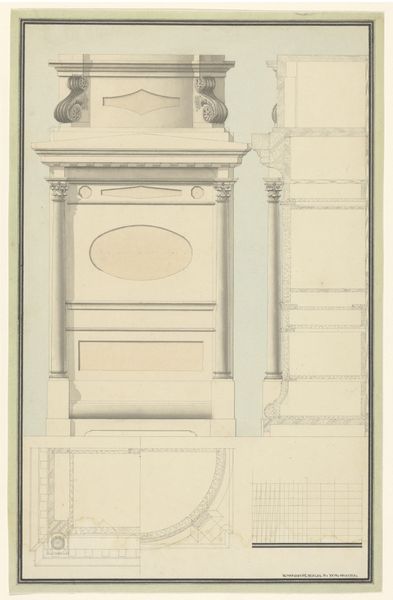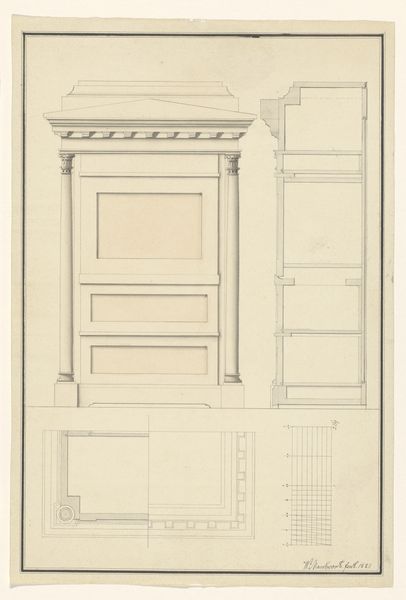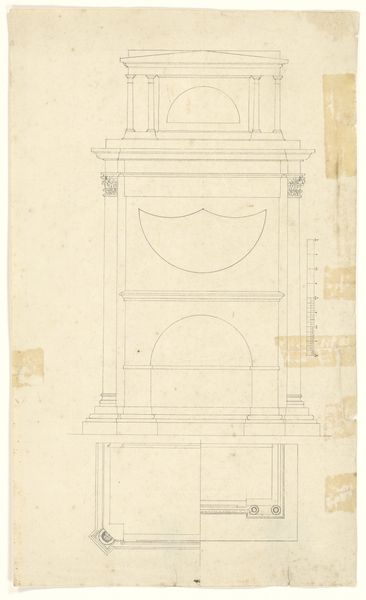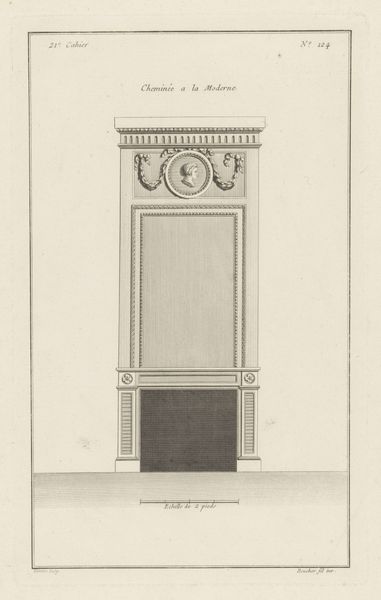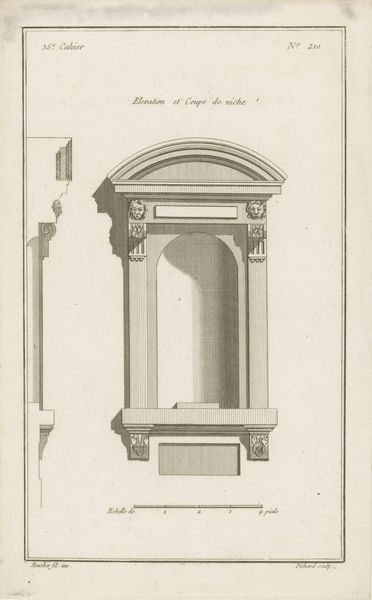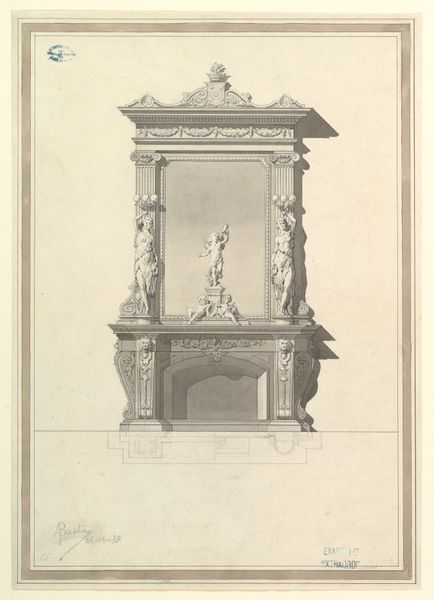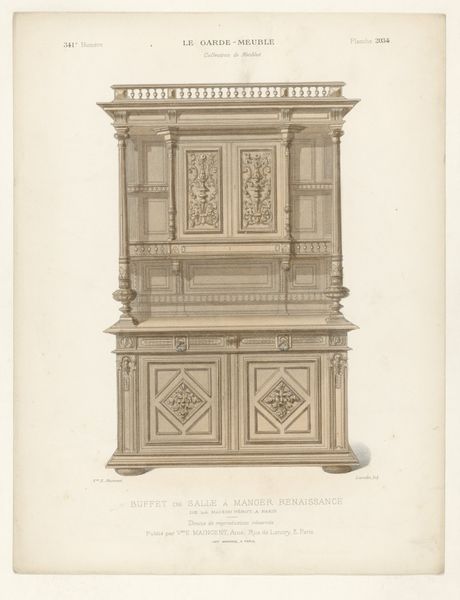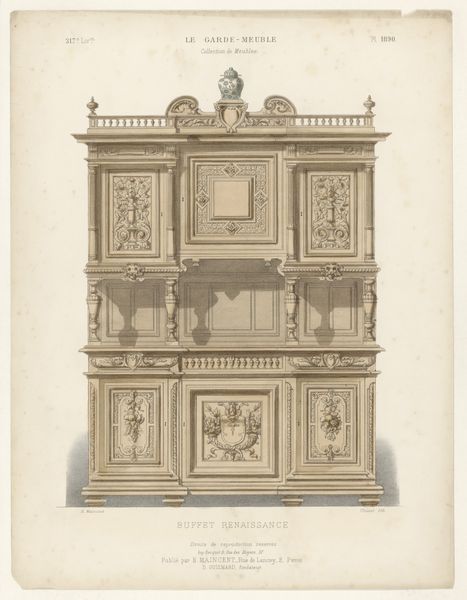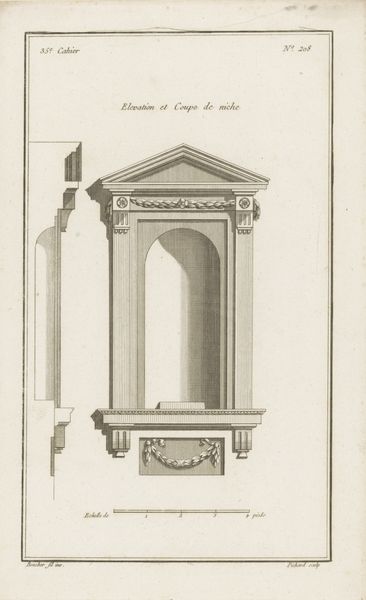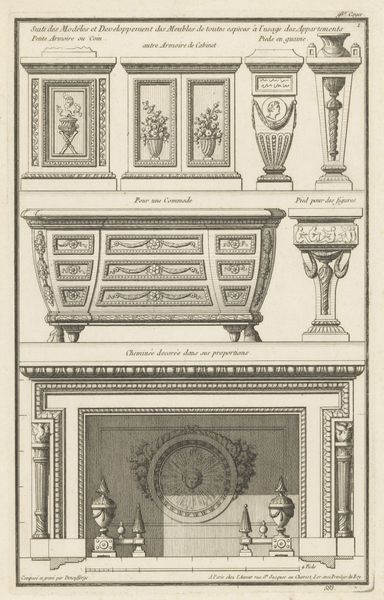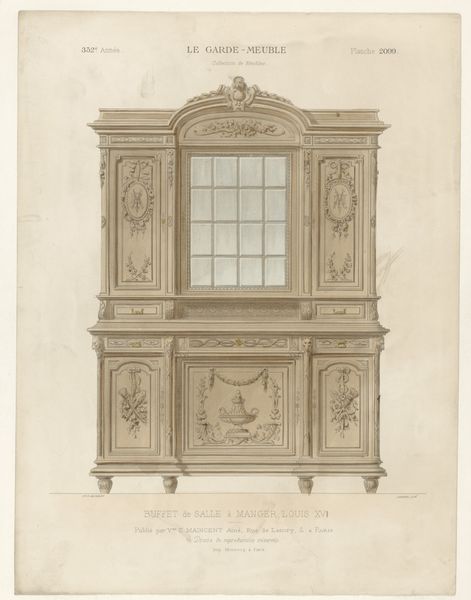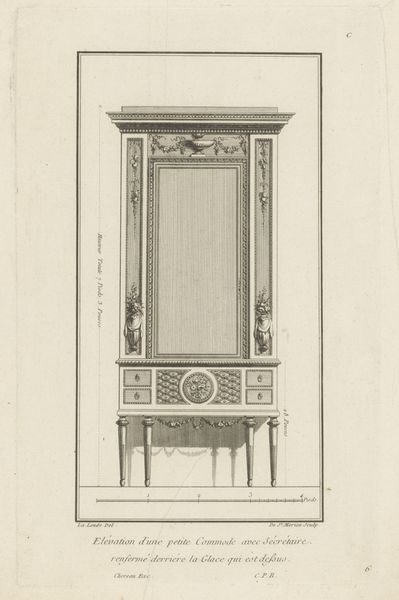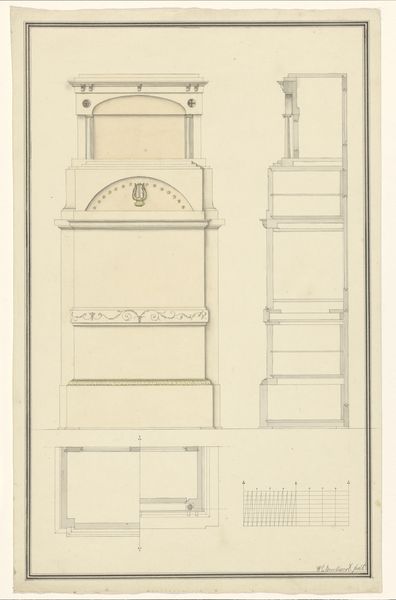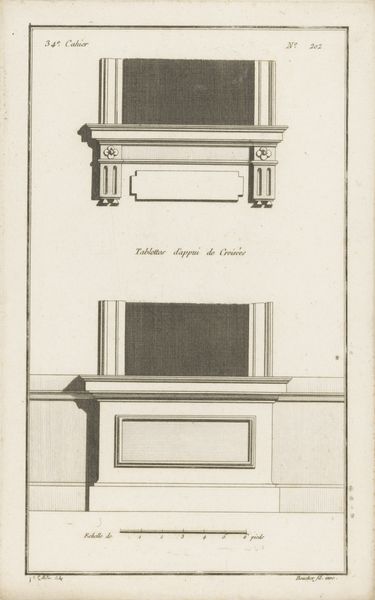
Secretaire met twee sfinxen, voor- en zijaanzicht met een in tweeën gedeelde doorsnede 1821
0:00
0:00
drawing, paper, pencil
#
drawing
#
neoclacissism
#
paper
#
form
#
pencil
#
line
Dimensions: height 413 mm, width 271 mm
Copyright: Rijks Museum: Open Domain
Here we have Carl Wilhelm Marckwort’s architectural drawing, "Secretaire met twee sfinxen, voor- en zijaanzicht met een in tweeën gedeelde doorsnede," rendering in pencil and wash the design for a writing desk, or "secretaire," adorned with sphinxes. During the 18th and 19th centuries, when this drawing was likely made, the fashion for incorporating sphinxes into furniture and architectural designs reflected a broader European fascination with ancient Egypt. Napoleon's Egyptian campaign, for example, sparked intense interest in Egyptian culture. The sphinxes, figures of mythical creatures, often represented wisdom, guardianship, and power. Their presence on a domestic object like a writing desk suggests how the rising middle class, with their aspirations for upward mobility, might incorporate symbols of power and knowledge into their daily lives. Consider the gendered implications, too. The writing desk, often associated with scholarly pursuits, becomes a site where notions of feminine intellect and domesticity intersect. The secretaire, with its hidden compartments, suggests that knowledge might be something private, even secretive.
Comments
No comments
Be the first to comment and join the conversation on the ultimate creative platform.
